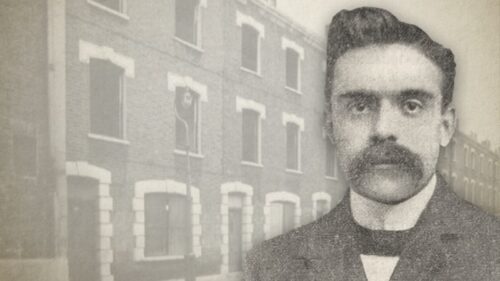-
Jared Smith On Various Issues, The Earthen Vessel, William Styles, A Guide To Church Fellowship (Complete)
Spurgeonism And The Strict And Particular Baptists
Dear Sir,—For some time I have felt the need of a few straight and honest words on this subject, for the instruction both of brethren who are not sentimentally with us; and also of some of the members of our own Churches. The principles which distinguish us as a section of the Baptist denomination seem to be but little known. Our own friends manifest far less determination than they used, in contending for the faith—while hardly a month passes, but I am entreated to advance the interests of brethren holding the late Mr. Spurgeon's creed, by introducing them to some of our vacant pulpits, as if their views and ours were all but identical and our differences were most immaterial and unimportant.
-
Addendum – The Sanctification Of The Spirit
Articles Of The Faith And Order Of A Primitive Or Strict And Particular Baptist Church Of The Lord Jesus Christ, Based On The Declaration Of Faith And Practice Of John Gill, D. D., 1720 XXIX. Conclusion. All and each of these doctrines and ordinances we consider ourselves under the greatest obligation to embrace, maintain, and defend; believing it to be our duty and privilege to “stand fast in one spirit, with one mind, striving together for the faith of the gospel.” And whereas we are very sensible that our “conversation," both in the Church and in the World, ought to be “as becometh the gospel of Christ,” we judge it our incumbent duty to “walk in wisdom towards them that are without and to exercise…
-
Article 29 – Conclusion
Articles Of The Faith And Order Of A Primitive Or Strict And Particular Baptist Church Of The Lord Jesus Christ, Based On The Declaration Of Faith And Practice Of John Gill, D. D., 1720 XXIX. Conclusion. All and each of these doctrines and ordinances we consider ourselves under the greatest obligation to embrace, maintain, and defend; believing it to be our duty and privilege to “stand fast in one spirit, with one mind, striving together for the faith of the gospel.” And whereas we are very sensible that our “conversation," both in the Church and in the World, ought to be “as becometh the gospel of Christ,” we judge it our incumbent duty to “walk in wisdom towards them that are without and to exercise…
-
Article 28 – Churches Should Conserve And Circulate The Truth
Articles Of The Faith And Order Of A Primitive Or Strict And Particular Baptist Church Of The Lord Jesus Christ, Based On The Declaration Of Faith And Practice Of John Gill, D. D., 1720 XXVIII. Churches should Conserve and Circulate the Truth. We believe that it is incumbent on every Church as such, and upon each of its members individually, to maintain, contend for, aud disseminate the truth of God,[] both as it concerns all men as sinners,[2] and the children of God as His peculiar and privileged people,[3] and we consider ourselves bound to promote and engage in the circulation of the Scriptures, the moral and religious instruction of children, and the preaching of the Gospel to every creature, in the prayerful hope that…
-
Article 27 – Obligations Of Church Members
Articles Of The Faith And Order Of A Primitive Or Strict And Particular Baptist Church Of The Lord Jesus Christ, Based On The Declaration Of Faith And Practice Of John Gill, D. D., 1720 XXVII. Obligations of Church Members. We believe that the members of a Church are solemnly bound to lead godly and consistent lives[1] to attend all meetings when practicable[2] to be courteous, conciliatory, and forgiving to all the rest[3] to contribute to the funds of their own church,[14] and to aid other churches, and the needy members of the one family of God in all places[5] as the Lord enables them.[6] ------------------------------- [1] Acts 19:36; Rom 12:1,2; 1 Thess 4:11; 1 Tim 2:3; Tit 1:13; 2:12; 1 Pet 4:15 [2] Heb 10:25…
-
Article 26 – Lapsed Membership
Articles Of The Faith And Order Of A Primitive Or Strict And Particular Baptist Church Of The Lord Jesus Christ, Based On The Declaration Of Faith And Practice Of John Gill, D. D., 1720 XXVI. Lapsed Membership. We believe that Christians who have suffered their Church membership to lapse, and that such as have been withdrawn from, (whether for non-attendance, immorality, or holding unscriptural doctrines,) have no Church standing; but, if they so desire, must be received by an oral and public confession of faith and experience, in the same way as when they first connected themselves with the Lord’s people,—their Baptism, (as in Article xxiii) being recognised as valid. Js 5:19,20—From this we learn that a reputed Christian who has “erred from (the profession…




